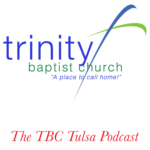
[sections collapse="always"][section title="Read More"]
This is an exposition of Lamentations 3. This message by Pastor Rod Harris was delivered at Trinity Baptist Church on Sunday evening, January 21, 2018.
Intro:
The psalmist asked, “How shall we sing the Lord’s song in a foreign land?” That’s a very good question. In fact the psalmist said:
By the waters of Babylon,
there we sat down and wept,
when we remembered Zion.
On the willows there
we hung up our lyres.
For there our captors
required of us songs,
and our tormentors, mirth, saying,
“Sing us one of the songs of Zion!”
How shall we sing the Lord’s song
in a foreign land?
Meanwhile of course the weeping prophet seemed to be saying, “How can we sing the Lord’s song in Jerusalem?” It was a time for wailing rather than singing. I time for mourning rather than rejoicing. Everywhere he looked he saw devastation. Verse after verse recounts the horrors of the Babylonian reign of terror yet the prophet is quick to point to the fact it is God who is the chief actor in this drama. It is the Lord who has come against His people with such fury. After years of warning, by numerous prophets, God’s judgment has come and it is terrifying. The end of the second Lament contains cannibalism, sacrilege and the streets of the city littered with bodies. Against the backdrop of this apocalyptic scene is the distant cry of a starving child and the wail of a broken-hearted mother. Yet amid such pain and devastation, through tears the prophet cries, “The steadfast love of the LORD never ceases; his mercies never come to an end; they are new every morning; great is your faithfulness.”
Our text this evening is found in Lamentations chapter 3.
Text: Lamenations 3:1-66
Thus far there have been two heart-wrenching laments.
Each highlighting the devastating wrath of God.
Yet acknowledging that God is good and right in bringing such judgment.
It is not pleasant/easy reading (or preaching!).
Chapter 3 is a change in direction.
It is almost as if the writer says, “I can’t take any more of this, I need a break.”
Chapter 3 is the heart of the book. It is the central message of the prophet. This is a work of Hebrew poetry and the structure tells us this is the climax, this is the point of the book. This lament is another acrostic. It is a triple acrostic with 3 verses for each letter. As we work through the song we discover that…
Thesis: The believer finds his way through the valley of suffering by fixing his gaze on the unwavering character of our loving, faithful God.
Hope is expressed in the midst of weeping. How is that possible? It is possible because Jeremiah understood that God is good and that God is faithful. We do not survive suffering by finally understanding our circumstance. We do not rise about our heartache and pain because figured it out - we look to and trust in the character of our God. Jeremiah does not make this joyous announcement in verse 22 because his circumstance has changed, nothing has changed, but because he remembered God is good and God is faithful.
There are 4 things I want us to note in this text…
- Extended suffering overwhelms even the stoutest heart leaving it destitute and broken. (3:1-18)
- A life thus broken finds hope in God’s love and faithfulness. (3:19-33)
- Newly restored hope continues to affirm God’s sovereignty and righteousness through tears. (3:34-51)
- The wounded saint clings to the fact that God has graciously taken up his cause and redeemed his life. (3:52-66)
Conclusion:
Ultimately our hope rests in the One who came and bore upon himself the sins of His people. The One who took up our cause and redeemed our lives. Our hope is in Christ, faithful and true. Redeemer, Savior, Comforter and Friend.
[/section][/sections]
